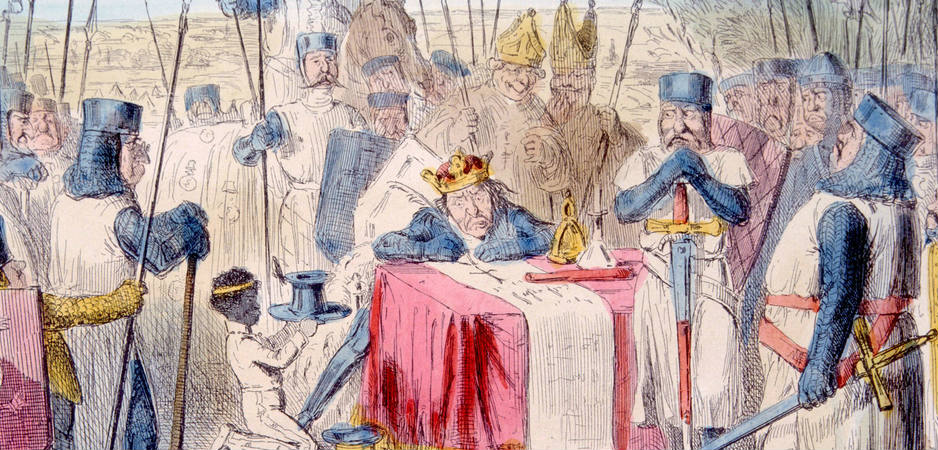Children of empires bred on ideologies such as “the white man’s burden” are struggling to cope with a changing world and are unleashing violence on imagined enemies.
On June 17, Dylann Storm Roof, a fanatical white supremacist, killed nine African Americans at the historic Emanuel African Methodist Episcopal Church in South Carolina. On Facebook, Roof’s profile photo showed him wearing two flags. One was the flag of apartheid-era South Africa and the other was that of white-ruled Rhodesia, a country now known as Zimbabwe. Among those who died was Clementa C. Pinckney, a pastor, a state senator and a promising black politician. US President Barack Obama rightly pointed out that “this type of mass violence does not happen in other advanced countries.”
Jon Stewart, the modern day sage in motley, is bang on the money when describing the terror inflicted on a daily basis by racism in the US. It is not “one guy losing his mind” in the land of former slave owners where the Confederate flag flies high. Roof killed black people in a state where Strom Thurmond ruled the roost not too long ago. This formidable politician opposed all civil rights legislation in the US Senate and abandoned the Democrats to become Republican on the passage of the Civil Rights Act of 1964. Like Roof, Thurmond supported segregation and opposed interracial dating. Thurmond himself led a double life and had sex with his 16-year-old family maid. The existence of the black daughter he fathered came to light only after his death.
To examine the tortured issue of race in the US and elsewhere, we have to go back to the age of empire. For the vast majority of the people on the planet, empire-building by the Portuguese, the Spaniards, the French, the Dutch and, above all, the English was a grim experience. In South America, the Spaniards blazed their guns to rob natives of their wealth and to impose their version of God through the Catholic Church. In North America, settlers from Britain stole land and slaughtered natives with a ferocity that exceeded that of the Spaniards. As a result, fewer natives survive north of the Rio Grande.
European empires began with good old fashioned theft, robbery and murder. This sort of thing tends to be uncomfortable. Human beings need to believe in something, whether it is mission civilisatrice or communism. Hence, right from the early days, the British, with their felicity for language, called piracy privateering. Soon, a more sophisticated system emerged. In India, the British imposed extortionate taxes and forced farmers to grow opium. This was exported to China in the name of free trade, and the Middle Kingdom was humiliated when it lost in the Opium Wars.
In the Caribbean and the Deep South, the system took on a slightly different form. First, the white settlers killed most of the natives. Then, they took over native lands to grow sugar and cotton. Since working on plantation was back breaking and the few natives left did not quite take to such work, the plantation owners imported slaves from Africa. For owners, slaves were mere chattel. Owners worked their slaves to the bone, and a third of them died within three years of their arrival. Cotton and sugar, the produce of slave labor, was shipped to England for the enjoyment of the upper-classes, a rising bourgeois and a working-class that was fast developing a taste for sugary tea.
This economic system was not terribly pleasant for the slaves. In Episode 4 of BBC Empire, Jeremy Paxman, a combative journalist and a Cambridge man, talks about Thomas Thistlewood, a slave owner in Jamaica. Thistlewood kept a diary and recorded the punishments he meted out to errant slaves. One slave was “well flogged and pickled” and another slave was made to shit in his mouth. A second slave was rubbed with molasses. Thereafter, he was exposed to flies all day and mosquitos all night. A third slave was washed and rubbed in salt pickled lime juice and bird pepper. Thereafter, another slave was made to piss in his eyes and mouth. For historians of the empire like Niall Ferguson, such collateral casualties in the march to modernization are entirely acceptable.
Perhaps even Ferguson might baulk at nutmegging, the rape of female slaves. Like many other slave owners, Thistlewood was particularly fond of this practice and recorded 3,852 occasions when he personally indulged in it. Like a good plantation man, he offered female slaves to his guests as well, who too had a taste for nutmegging. In more recent times, rich white men like Thurmond enjoyed their maids more discreetly and sometimes even paid for the education of their illegitimate children. So, it is somewhat ironic that Roof told the people he murdered in cold blood: “You rape our women and you’re taking over our country. And you have to go.”
Americans who watch Fox News often dismiss the horrors of slavery as irrelevant history. They argue that African Americans should get off their backsides, embrace family values and work harder. After all, the governor of South Carolina is an Indian woman and the president of the US is a black man. So, bringing up slavery, Jim Crow and segregation is simply playing the blame game and preying on “white guilt.” The fact that one out of three black men end up in jail is merely a reflection of their dark proclivities. The reality is that the criminalization of poverty, the focus on policing and investment in prisons have led to a new kind of apartheid that is primarily economic, but poor African Americans suffer disproportionately from it.
It is important to note that the economic turmoil in the US is also affecting working-class white men. Some like Roof are looking to blame someone. Fox News feeds a steady dribble of diatribe that excoriates the poor for sponging off welfare. Now, it is an unfortunate coincidence that the poor tend to be people with more melanin in their skin. Fox News also paints a specter of hordes of brown-skinned immigrants streaming up into the United States from Mexico. Its outraged television hosts tell their viewers that bearded Muslim men in caves and deserts are plotting to destroy the US. They want their country to man up and be an assertive superpower as in the good not-so-old days of President George W. Bush. These hosts foam at their mouths in rage at Obama and his liberal friends for selling US interests down the river.
Roof is part of an increasing number of young white men who are finding the pace and scale of change far too much to handle. They want easy answers and a clear ideology. Some who grow up in the Deep South are subconsciously if not consciously infected by the ideology of white supremacy embodied by the Confederate flag. An education system that fails to expose them to ideas or inspire them to question hobbles their future. They find it hard to get jobs in an economy of patrons and baristas. When their self-worth is threatened, they succumb to addiction or fanaticism. Crumbling families and collapsing communities mean they have little support when they hit a downward spiral. A vituperative media and the Internet foster a siege mentality. Purchasing guns is as easy as buying coffee. So, pulling the trigger on the black untermensch can take place easily.
Even as the benighted white children of the European empires look back to the slavery days with nostalgia, the Russian empire is rearming again. At the end of the World War I, the Austro-Hungarian and Ottoman Empires collapsed. After World War II, other European empires ended. In 1989, the Soviet Union started crumbling. That process has continued and, as Ukraine looks West, Russian President Vladimir Putin, a former KGB colonel and modern day Tsar, is fighting a rearguard action to retain influence. Even as the US increased its military presence in eastern Europe, Putin declared that Russia will put more than 40 new intercontinental ballistic missiles into service in 2015.
Putin is upping the ante in a game of high stakes poker. Russia may be broke, but it can still needle cushy Europeans and war-weary Americans. To play poker at the top table, Russia is renting vast tracts of land to the Chinese in Siberia. Russia and China have had rollercoaster relations over the past few decades. Yet they have been inching closer of late. In 2010, the first pipeline between Russia and China was built. In 2014, the two countries signed a 30-year gas deal worth $400 billion.
Finally, the United Nations High Commissioner for Refugees (UNHCR) announced that “wars, conflict and persecution have forced more people than at any other time since records began to flee their homes and seek refuge and safety elsewhere.” As the states create by empires collapse, angry young men like Roof seek scapegoats. Messianic leaders, warlords and toxic ideologies can seduce them. Race, religion, ethnicity et al create an explosive cocktail that leaves a trail of destruction in its wake. Richer societies are aging and do not want to bear the burden of supporting refugees. Poorer societies are already under strain, and an influx of large numbers of desperate people is pushing them to their limits.
The rise in refugees raises many questions about the global political and economic system. There are no easy answers, but disengaging with questions is no longer an option. It is time for the Facebook generation to look beyond its Uber lives and Starbucks experiences to recognize realities that stare humanity in the face.
*[You can receive “The World This Week” directly in your inbox by subscribing to our mailing list. Simply visit Fair Observer and enter your email address in the space provided. Meanwhile, please find below five of our finest articles for the week.]
[seperator style=”style1″]Guns, God and Racism Continue to Blight America[/seperator]
In America, Second Amendment fever continues to fuel a society that has become so inured to daily gun violence.
[Author’s Note: The following article was written just before a white lunatic with a handgun killed nine black people in a church in South Carolina. This latest mass slaying by firearm features guns, god and racism all together in one tragic American moment.]
It would be really spectacular to add a big electric digital scoreboard to the new World Trade Center building (Freedom Tower) in New York City that could display some relevant “land of the free” numbers: total number of deaths by gunshot in each calendar year in the United States; total number of deaths by gunshot by police officers and of police officers side-by-side; and for good measure, separate numbers for accidental deaths, suicides and just plain old criminal homicides by gunshot.
If we want to be fair, we could add a global touch by including the totals for Britain, Germany and Japan… Read more
[seperator style=”style1″]Lebanon and Islamic State Reveal Cracks in Arab World[/seperator]
Lebanon’s tensions demonstrate the flawed nature of nation-states in the Arab world.
When states are created without the correspondence of a crystallized nation, the outcome of nationalism can be linked to community tensions and, to some extent, the development of terrorist organizations like the Islamic State (IS).
The current context in Lebanon illustrates the roots and outcomes of this peculiar situation. Mashreq states—in this case limited to Iraq, Syria, Jordan and Lebanon—were created in a short space of time in the wake of World War I without a stable nation composing them.
Consequently, Arab nationalism developed in a particular way, characterized by two main branches: qawmiyya and wataniyya. Qawmiyya is a nationalism determined by the adhesion of the individual toward Arab nations as a whole; it is the practical translation of pan-Arabism.
This project includes and also stands in opposition to the other nationalist trend that is wataniyya, which is defined as the adhesion to a specific Arab country. Wataniyya nationalism… Read more
[seperator style=”style1″]Aum Shinrikyo’s Spiritual Journey From Meditation to Mass Murder[/seperator]
How did Aum Shinrikyo, which began as a peaceful Buddhist sect, devolve into violence?
Twenty years after Japan was shaken by Aum Shinrikyo’s nerve gas attack on March 20, 1995, which killed 13 people and injured thousands, the last of the court proceedings are finally coming to an end. In April 2015, Takahashi Katsuya was sentenced to life imprisonment. Takahashi was one of those who helped the subway attackers escape; he was arrested in 2012 after 17 years on the run.
Thirteen people, including the group’s charismatic leader, Asahara Shoko, were sentenced to death—though whether they will be executed is unclear. What is certain is that 20 years after the event, the actions of Aum continue to resonate in Japan. While the religious terrorism spotlight has recently shifted to Islamist groups like al-Qaeda and the Islamic State, Aum remains a striking example of modern religious extremism and violence. It was the first nongovernmental organization ever to use lethal chemical weapons on the general… Read more
[seperator style=”style1″]Pakistan’s “Ambivalence” in Yemen[/seperator]
The Pakistani parliament’s resolution on Yemen served to remind the GCC that Pakistan is a South Asian Muslim power, not an Arab one.
Aitzaz Ahsan, a prominent member of Pakistan’s opposition, once wrote: “We [Pakistan] are, and very much remain, a South Asian Muslim country: sharing aspirations and history with India—due process, habeas corpus, mandamus, certiorari. We are not a Middle Eastern Arab Muslim country.”
Such words have some bearing on the April 10 resolution—passed by the Pakistani parliament and endorsed by Prime Minister Nawaz Sharif—to avoid taking sides in the Yemeni conflict.
For all intents and purposes, it appears highly unlikely that Pakistan’s army will enter the fray in Yemen. Pakistan’s somewhat neutral position vis-à-vis the Yemeni crisis has confounded “Pakistani watchers” in the West. Islamabad’s stance is understood as a means of balancing Pakistan’s relations with Saudi Arabia and neighboring Iran, while countering the risk of heightening sectarian tension, given the staunch opposition to Riyadh’s war in Yemen… Read more
[seperator style=”style1″]6 Magna Carta Myths Explained[/seperator]
Our shared perception of Magna Carta owes more to events in the 17th and 18th centuries than the 13th.
English history is full of myths. That shouldn’t surprise us, because a large part of modern English national identity is based on what we collectively believe happened in the past, rather than on what actually did—at least, as far as we can tell.
The job of historians becomes harder still when there are fewer sources to deal with. It’s also challenging because the sources we do have come loaded with their own sets of problems. Bias, of course, is the best known. But there are others too.
Unfortunately, Magna Carta has several myths attached to it. Here are six of the most common, explained.
With Magna Carta, what we are essentially celebrating is the triumph of the rule of law over arbitrary power. Whether that power was abused by monarchs, heads of state or politicians amounts to the same thing… Read more
The views expressed in this article are the author’s own and do not necessarily reflect Fair Observer’s editorial policy.
Photo Credit: PhotosbyAndy / Shutterstock.com
We bring you perspectives from around the world. Help us to inform and educate. Your donation is tax-deductible. Join over 400 people to become a donor or you could choose to be a sponsor.
Support Fair Observer
We rely on your support for our independence, diversity and quality.
For more than 10 years, Fair Observer has been free, fair and independent. No billionaire owns us, no advertisers control us. We are a reader-supported nonprofit. Unlike many other publications, we keep our content free for readers regardless of where they live or whether they can afford to pay. We have no paywalls and no ads.
In the post-truth era of fake news, echo chambers and filter bubbles, we publish a plurality of perspectives from around the world. Anyone can publish with us, but everyone goes through a rigorous editorial process. So, you get fact-checked, well-reasoned content instead of noise.
We publish 2,500+ voices from 90+ countries. We also conduct education and training programs
on subjects ranging from digital media and journalism to writing and critical thinking. This
doesn’t come cheap. Servers, editors, trainers and web developers cost
money.
Please consider supporting us on a regular basis as a recurring donor or a
sustaining member.
Will you support FO’s journalism?
We rely on your support for our independence, diversity and quality.












Comment